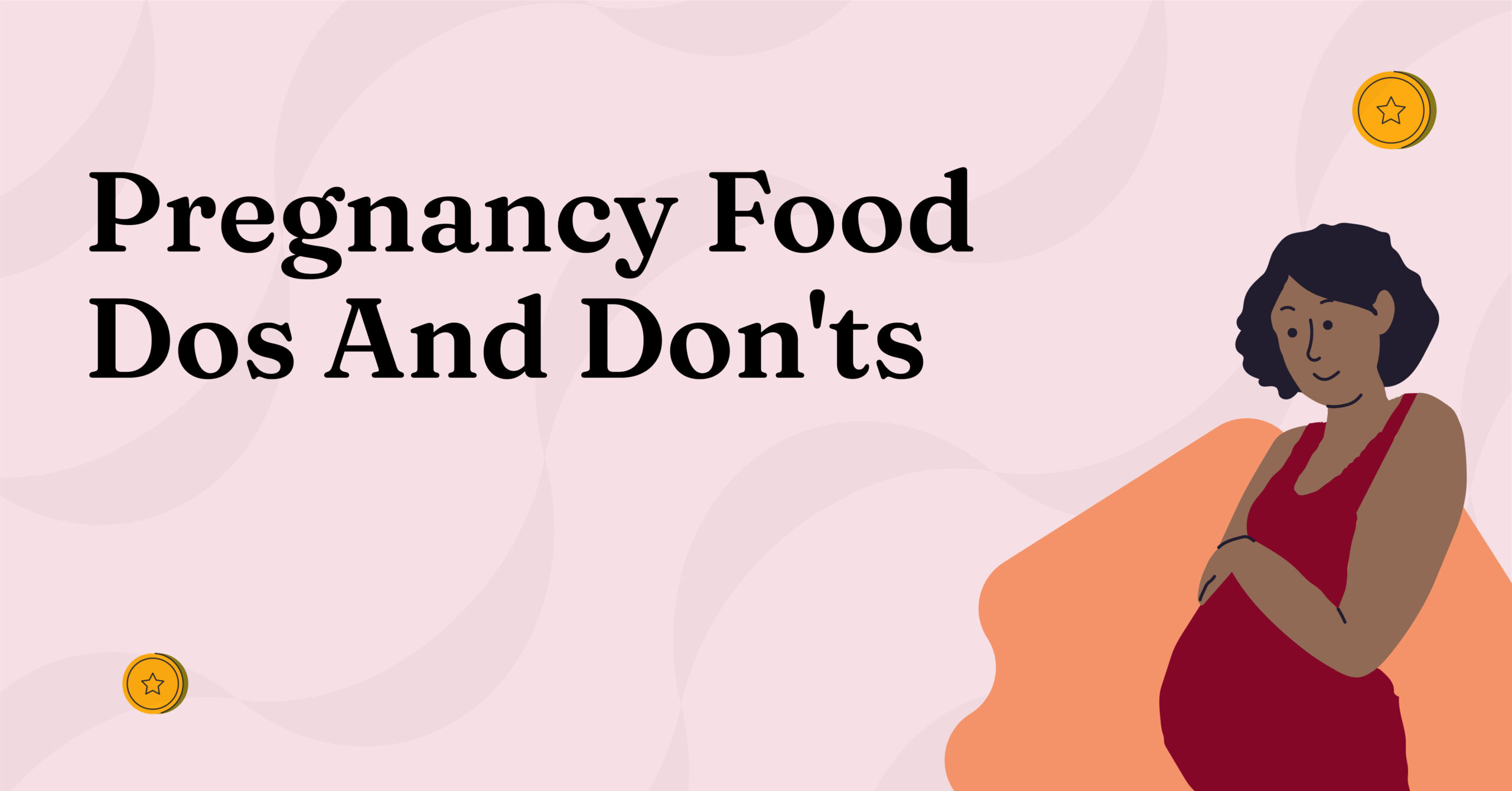Pregnancy is an exciting but sensitive time for women expecting kids. From the moment you discover you’re carrying life inside you, everything changes. Your body becomes a vessel of protection and nourishment for your unborn child, so the choices you make are important. In Nigeria, we often hear various advice from elders, friends, and even random strangers about pregnancy food cravings, medications to avoid, and the best foods to eat. But how do you know what’s true?
Navigating pregnancy can be overwhelming, especially when it comes to what foods to eat, what to avoid, and the importance of following your doctor’s instructions. These decisions affect not just your health but the health of your baby as well. Many Nigerian women experience weird pregnancy food cravings and even turn to spicy foods for comfort, but is it okay to eat spicy food during pregnancy? And what about high-fiber foods or real food for pregnancy?
In this article, we’ll break down the essential dos and don’ts of pregnancy foods for Nigerian women. We’ll discuss everything from what fruits are good for pregnancy to medications you shouldn’t take during pregnancy.
Why it’s important to follow Doctor’s instructions during pregnancy
First of all, why is it important to follow the Doctor’s instructions during pregnancy? Pregnancy is not just about you; it’s about the life growing inside of you. Every piece of advice your doctor gives is backed by medical knowledge and experience, tailored to safeguard your health and the health of your baby. Ignoring these instructions can lead to various complications that could affect both mother and baby.
Risks associated with ignoring medical advice during pregnancy
Some possible risks of not following your doctor’s guidance include:
- Gestational diabetes: This can occur if your diet is too high in sugar or unhealthy carbs. If left unchecked, it can lead to bigger babies, premature births, and even long-term health risks for both mother and baby.
- Pre-eclampsia: This condition, which involves high blood pressure during pregnancy, can cause harm to important organs. A balanced diet and regular check-ups can help manage this condition.
- Premature birth: Certain medications and foods can trigger early labor or lead to underweight babies. This can affect the child’s development and increase health risks.
- Nutritional deficiencies: Without the right nutrients, both you and your baby might lack essential vitamins and minerals, affecting the baby’s growth and your ability to handle the pregnancy well.
- Excessive weight gain: Poor diet choices can lead to rapid weight gain, increasing your risk of complications like gestational diabetes and making delivery more challenging.
- Allergic reactions: Certain medications or foods that are safe for others may not be safe for pregnant women. Allergies or reactions can become severe and impact your pregnancy.
Now, let’s get into the specific dos and don’ts of pregnancy, focusing on what’s best for you and your baby.
7 Pregnancy dos for Nigerian women
Here are some absolute dos for Nigerian pregnant women that protect them and their babies.
1. Eat real, nutritious food
Eating real food during pregnancy is super important for both you and your baby. Real foods like vegetables, fruits, whole grains, and lean proteins provide essential nutrients that processed or fast foods simply don’t have. Make sure your meals are balanced, with a good amount of high-fiber foods for pregnancy, which will help with digestion and prevent constipation.
2. Include fruits in your diet
You might be wondering what fruit is good for pregnancy? Some of the best fruits for pregnancy are oranges, bananas, avocados, and watermelon. These fruits are packed with vitamins like folic acid, which is great for preventing birth defects. They also help you stay hydrated and provide much-needed energy.
3. Take prenatal vitamins
Doctors often prescribe prenatal vitamins that contain iron, calcium, folic acid, and other nutrients. These are important for your baby’s development, especially in the early stages of pregnancy when crucial organs are forming. Don’t skip your supplements, as they help fill any gaps in your diet.
4. Eat high-fiber foods
High-fiber foods for pregnancy such as beans, whole grains, and vegetables help keep your digestive system moving, preventing constipation—a common issue during pregnancy. Fiber also helps control blood sugar levels, reducing the risk of gestational diabetes.
5. Stay hydrated
Drink plenty of water throughout the day. Your body needs extra fluids to support your baby’s amniotic fluid, maintain proper digestion, and ensure healthy blood circulation. Aim for about 8-10 glasses of water daily.
6. Pay attention to weird pregnancy food cravings
Many Nigerian women experience strange cravings during pregnancy, from chalk to ice. While some cravings might seem harmless, it’s super important to speak to your doctor if you’re drawn to non-food items. Craving strange things like dirt or soap could be a sign of a mineral deficiency, like iron.
7. Get enough rest
Though not a food-related tip, rest is an essential pregnancy do. Growing a baby is hard work, and your body needs time to recharge. Lack of rest can increase stress and fatigue, negatively impacting both you and your baby.
7 pregnancy don’ts for Nigerian women
Here are 7 important things to avoid as a pregnant woman:
1. Avoid certain medications during pregnancy
Not all medications are safe to take during pregnancy. Medications to not take during pregnancy include:
- Non-steroidal anti-inflammatory drugs (NSAIDs)
They are used for pain relief and inflammation reduction (e.g., ibuprofen). Pregnant women should avoid NSAIDs because they can lead to complications such as premature closure of the ductus arteriosus (a blood vessel in the fetus), affecting fetal kidney function, and causing potential bleeding problems during delivery.
- ACE inhibitors
They are used for treating cardiovascular conditions (e.g., enalapril, lisinopril). Pregnant women should avoid ACE inhibitors because they can lead to fetal kidney damage, low blood pressure, and impaired lung development.
- Retinoids
They are used for treating severe acne and other skin conditions (e.g., isotretinoin). Pregnant women should avoid retinoids due to their high risk of causing birth defects, including abnormalities of the brain, heart, and face.
- Tetracycline
They are used for treating bacterial infections (e.g., doxycycline, minocycline). Pregnant women should avoid tetracycline because it can affect the development of fetal bones and teeth, leading to discolouration and potential growth issues.
- Warfarin
It is used as an anticoagulant for preventing and treating blood clots. Pregnant women should avoid warfarin due to its association with bleeding complications and birth defects, including issues with the baby’s bones and central nervous system.
Always speak to your doctor before taking any medication, even if it seems harmless.
2. Stay away from unpasteurized dairy products
Cheese and milk are great sources of calcium, but make sure they’re pasteurized. Unpasteurized means that the milk or cheese hasn’t been heat-treated to kill harmful bacteria. These bacteria, such as listeria, can cause serious infections that might lead to miscarriage or stillbirth. So, always choose pasteurized dairy products, which have been safely treated to remove these risks.
3. Don’t eat raw or undercooked fish
Raw fish, like sushi or poorly cooked seafood, can carry parasites or bacteria harmful to both you and the baby. It’s important to avoid raw fish during pregnancy to prevent foodborne illnesses.
4. Limit caffeine and sugary drinks
Too much caffeine can lead to low birth weight or premature birth. Stick to one cup of coffee or tea per day and avoid sugary drinks like soda that add empty calories and spike your blood sugar. Make sure your Doctor is in the loop of your dietary decisions.
5. Avoid processed junk food
Cravings for sugary or processed foods might be hard to resist, but these snacks are often high in salt, sugar, and unhealthy fats, which contribute to excessive weight gain and increase your risk of gestational diabetes.
6. Avoid certain herbal teas
While herbal teas are natural, not all are safe for pregnancy. Some herbal ingredients can cause uterine contractions or harm the baby. Always check with your doctor before drinking any herbal teas.
7. Don’t eat too much liver
Though the liver is packed with nutrients like iron and vitamin A, consuming too much vitamin A during pregnancy can lead to birth defects. Limit your intake and speak to your doctor about safe amounts.
Navigating pregnancy is a beautiful but sensitive journey that requires careful attention to your health and well-being. This is what keeps your baby safe. Knowing which foods are safe, like what fruit is good for pregnancy, and avoiding harmful medications can make a big difference for you and your baby. Always check with your doctor if you’re unsure, and follow these tips to keep you both healthy and safe.





